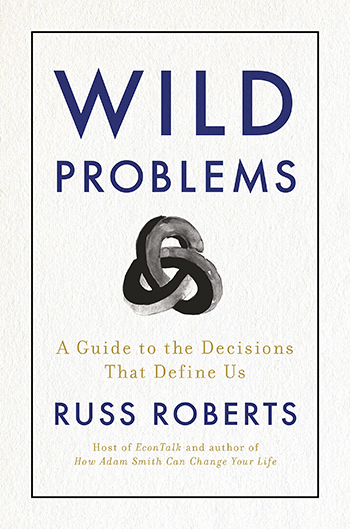As an economist, Russ Roberts has been taught to approach decision-making by conducting an analysis, weighing tradeoffs, and then rationally budgeting resources to get the most bang for his buck. But as he explains in his new book, Wild Problems: A Guide to the Decisions That Define Us, he found this approach woefully inadequate for grappling with life's biggest decisions — things like figuring out whether to get married or how to live a meaningful life.
As an economist, Russ Roberts has been taught to approach decision-making by conducting an analysis, weighing tradeoffs, and then rationally budgeting resources to get the most bang for his buck. But as he explains in his new book, Wild Problems: A Guide to the Decisions That Define Us, he found this approach woefully inadequate for grappling with life's biggest decisions — things like figuring out whether to get married or how to live a meaningful life.
Today on the show, Russ and I delve into why the pros and cons approach to decision-making is inadequate when facing what he calls "wild problems." Russ explains that what makes life's big decisions so difficult to deal with is the fact that we don't know what they'll be like before we make them, the decisions themselves will transform us into different people, and their effects can be permanent, making such decisions akin to choosing to become a vampire. From there we turn to strategies for dealing with the inherent uncertainty around wild problems, including looking beyond basic happiness, considering tradition, and trying things out by experience.
